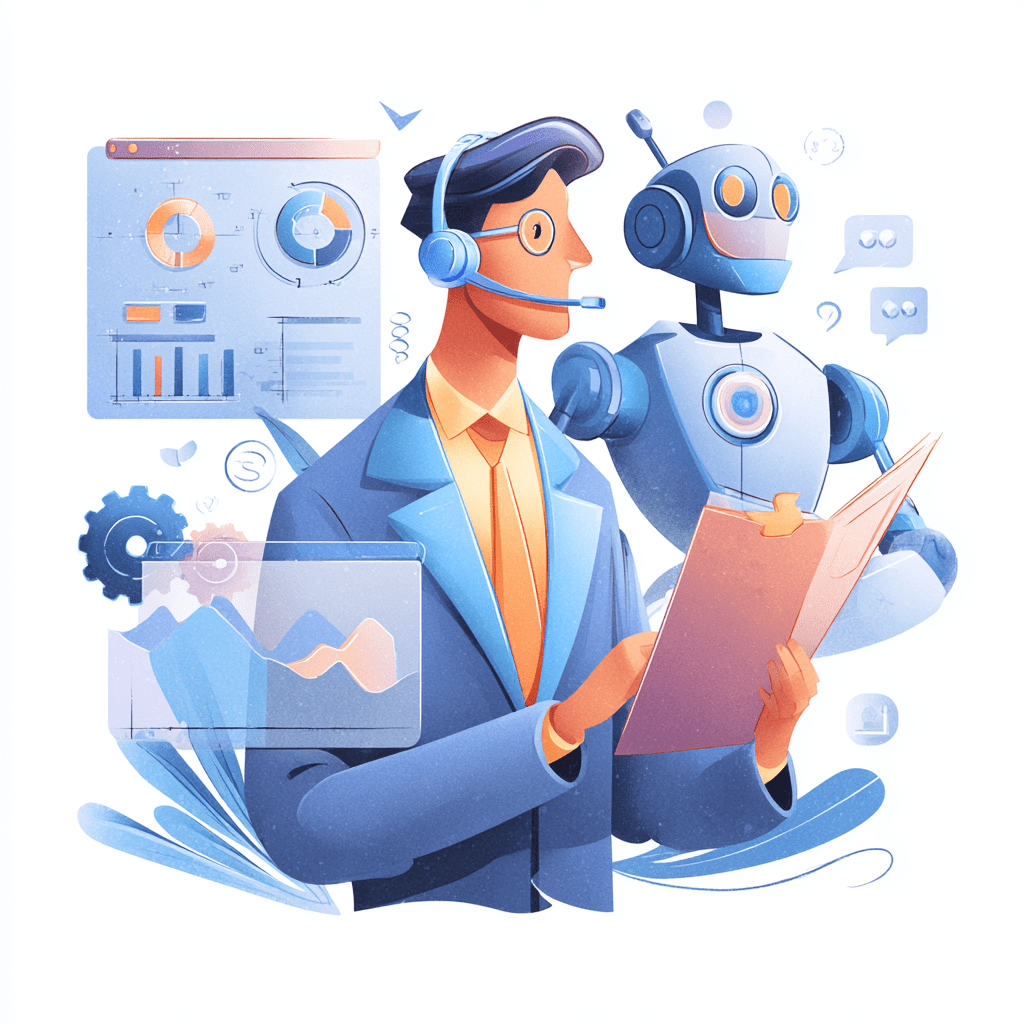What is AI-Driven CRM Integration?
Let’s start with the basics—AI-driven CRM integration is all about plugging artificial intelligence tech into your customer relationship management system. Traditionally, CRMs have been pretty good at keeping your customer data tidy, tracking interactions, and automating some routine tasks. But when you introduce AI to the mix, things get a lot smarter.
Think of AI as the tireless assistant who not only organizes your information, but also analyzes patterns in customer behavior, suggests the next steps, and even predicts what your customers might need before they reach out. Features like natural language processing (the tech behind chatbots) and machine learning take CRMs from being passive record-keepers to proactive business partners. The result? Faster decisions, happier customers, and a leaner, more efficient business. In today’s ultra-competitive market, that’s a game-changer.
References:
IBM: AI + CRM
Itransition: AI for CRM
Key Benefits of Combining AI and CRM
Bringing AI into your CRM isn’t just about flash—it’s about real, tangible results for your business. For starters, AI supercharges lead scoring by crunching huge amounts of data to figure out which prospects are actually worth your team’s attention. This means sales teams can spend less time guessing and more time closing.
When it comes to marketing, AI lets you personalize your outreach at scale—tailored recommendations, targeted emails, and more—all driven by how your customers actually behave and what they prefer. AI-powered chatbots and virtual assistants mean customers get speedy, accurate support (and your team gets to focus on the trickier cases). And with predictive analytics, you gain the intelligence to forecast trends and prepare for what’s next, instead of always reacting to what just happened. This is about making your business smarter, not just busier.
References:
Lindy: AI in CRM
eWay-CRM: 9 Key Areas for AI Integration
Popular AI Tools and Features for CRM
So what does AI actually look like inside a CRM system? One of the most familiar faces is the chatbot—these digital helpers work 24/7 to answer questions, qualify leads, and connect customers to the right resources. Not only do they chat with website visitors, but they gather valuable data and feed it directly to your sales team for seamless follow-up.
Sales automation is another biggie. AI algorithms can sift through mountains of data to spot emerging trends, prioritize leads, and even recommend the best next action. On top of that, advanced natural language processing allows CRMs to understand and sort data from emails, meeting notes, and more. And with AI-powered analytics always running, you get fresh, actionable insights to help drive decisions. These features aren’t just nice to have—they could soon be essential for staying ahead.
References:
Pipedrive: Integrating AI in CRM
BIGContacts: AI for CRM
Best Practices for Seamless AI Integration
Ready to blend AI into your CRM? The first step: get your data house in order. Cleansing and organizing your data before adding AI ensures the system delivers trustworthy insights, rather than garbage in, garbage out. Next, focus on picking the right AI solutions for your unique needs—think about compatibility, scalability, and the specific business problems you want to solve.
But don’t stop at the tech. People matter, too. Make your integration transparent, train your employees thoroughly, and communicate clearly why you’re making these changes. The sooner your team sees the practical value (like saving time or closing more deals), the faster they’ll get onboard. Creating feedback loops and support systems will keep the momentum strong as your team adapts and AI continues to evolve.
References:
Itransition: AI for CRM
eWay-CRM: 9 Key Areas for AI Integration
Challenges and Considerations
Of course, AI integration isn’t all smooth sailing. One of the biggest hurdles is data privacy. With regulations like GDPR, you’ve got to make sure you’re handling customer data responsibly—or risk fines and a hit to your reputation. Techniques like data anonymization, strict access controls, and regular audits go a long way in keeping data safe and compliant.
Tech hurdles pop up, too. Many companies are running on a patchwork of legacy systems, which can make AI integration tricky—often requiring custom connections or middleware. There’s also the risk of bias creeping into AI models, especially if your data isn’t diverse. To beat this, you’ll need to be vigilant: monitor results for bias regularly, update models, and invest in ongoing employee training to keep your team and your tech on the right track.
References:
ScienceDirect: Data Privacy in AI-CRM Integration
Future Trends in AI-Integrated CRM
The future is bright—and busy! As AI technology rapidly evolves, expect CRMs to automate even more complex tasks, offer deeper customer insights, and make every interaction feel personal. Features like voice assistants and conversational interfaces are poised to make CRMs easier to use for everyone, speeding up sales cycles and improving support.
We’ll also see predictive tools get better at anticipating what customers need—sometimes before they even know themselves! Multimodal AI is on the horizon, set to analyze everything from calls to emails in context, for richer, unified customer profiles. And as regulations tighten, ethical AI practices and transparency will be at the forefront, helping your business build trust while staying ahead. In this fast-changing digital landscape, integrating AI with CRM is less of a nice-to-have and more of a must to truly differentiate your business and drive growth.
References:
Nutshell: The Future of AI-Driven CRM
Scratchpad: AI and CRM Innovations


